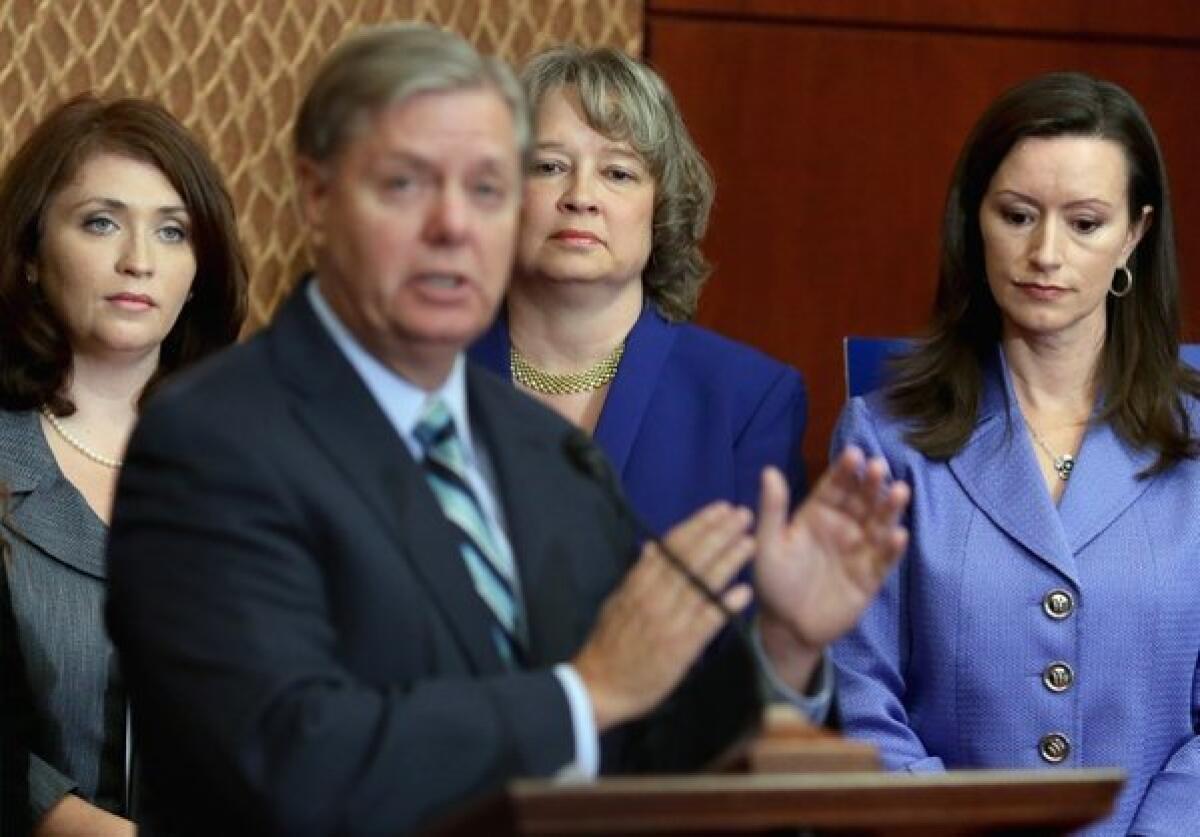Lindsey Graham vs. Clarence Thomas on abortion

This week, Sen. Lindsey Graham (R-S.C.) introduced a bill that would outlaw abortion after 20 weeks, on the premise that a fetus at that stage of development can feel pain. His Pain-Capable Unborn Child Protection Act is a federal version of legislation that has been approved in 13 state legislatures, including Texas’.
With President Obama, who favors abortion rights, in the White House and possessing a veto pen, Graham’s bill isn’t about to become law anytime soon. But say it were to pass Congress in 2017 and be signed by an antiabortion Republican president. Assume further that Obama hadn’t been able to replace any of the Republican appointees on the Supreme Court. Wouldn’t a 20-week cutoff have a good chance of being upheld?
Not necessarily, for what may be a surprising reason.
The last time the Supreme Court considered a federal abortion law was 2007, when it upheld the Partial-Birth Abortion Act. The majority consisted of five Republican appointees who are still on the court: Chief Justice John G. Roberts Jr. and Justices Antonin Scalia, Anthony M. Kennedy, Clarence Thomas and Samuel A. Alito Jr.
But Thomas filed a concurring opinion that made this tantalizing point: “I also note that whether the Act constitutes a permissible exercise of Congress’ power under the [Constitution’s] Commerce Clause is not before the court. The parties did not raise or brief that issue; it is outside the question presented; and the lower courts did not address it.”
Thomas is strong on states’ rights and skeptical of Congress’ authority to legislate in areas, such as the “police power,” that he believes the Constitution reserves to the states. He dissented from a 2005 decision in which the court upheld Congress’ authority to prohibit the local cultivation of marijuana.
In that case, Thomas complained: “Respondents’ local cultivation and consumption of marijuana is not ‘Commerce’ … among the several states. By holding that Congress may regulate activity that is neither interstate nor commerce under the Interstate Commerce Clause, the court abandons any attempt to enforce the Constitution’s limits on federal power.”
Suppose the Graham abortion bill became law and a lawyer for Planned Parenthood or the ACLU was smart enough to argue that it was unconstitutional not because it violated a woman’s constitutional right to have an abortion (which Thomas doesn’t recognize) but because it exceeded Congress’ enumerated powers.
That could mean Thomas would vote to strike it down, depriving of the law of the necessary five votes.
ALSO:
Albert Camus -- forever modern
Dodd-Frank: Obama’s other big bad law
In Washington, a crisis in competence
More to Read
A cure for the common opinion
Get thought-provoking perspectives with our weekly newsletter.
You may occasionally receive promotional content from the Los Angeles Times.







